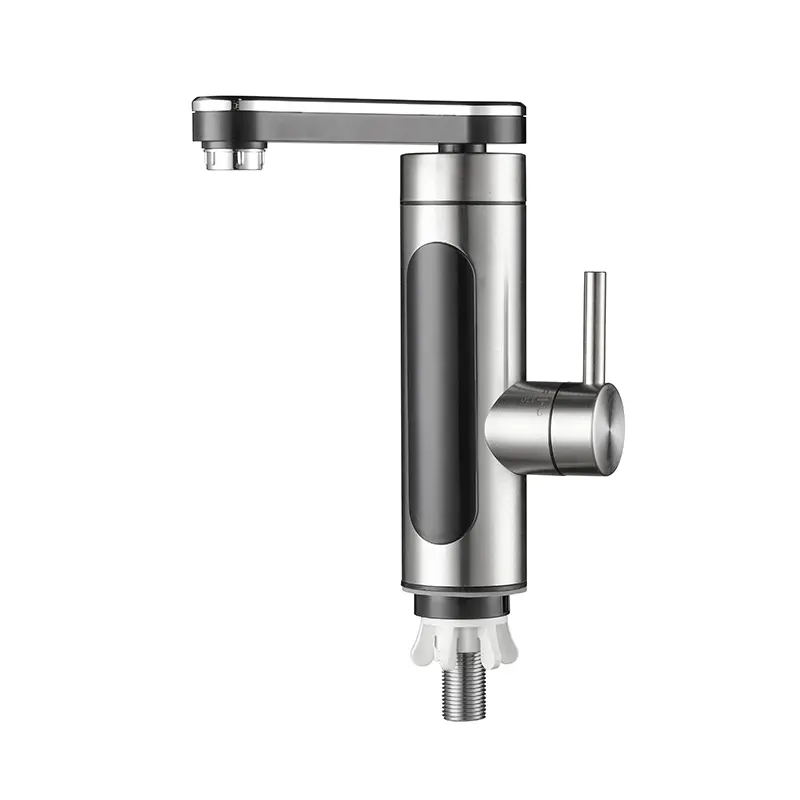Understanding Bypass Oil Filters: Essential for Engine Longevity and Performance
2025-01-04
When it comes to maintaining the health and longevity of an engine, the importance of clean, well-filtered oil cannot be overstated. Oil serves as the lifeblood of an engine, lubricating its moving parts, reducing friction, and ensuring smooth operation. To maintain optimal engine performance, it’s crucial to keep the oil free from contaminants such as dirt, dust, and metal particles. While traditional oil filters do a great job of cleaning the oil, bypass oil filters offer an advanced solution for even more thorough filtration, especially in high-performance or heavy-duty applications.
In this blog, we will explore what bypass oil filters are, how they work, and why they are becoming increasingly popular in both automotive and industrial applications.
What is a Bypass Oil Filter?
A bypass oil filter is a supplementary filtration system that works alongside the primary oil filter to remove contaminants from the engine oil. Unlike traditional full-flow filters, which filter all of the oil that passes through the system, a bypass filter only filters a small portion of the oil at a time. This filtered oil is then returned to the engine, helping to maintain the oil’s cleanliness and ensuring the engine continues to operate smoothly.
Bypass oil filters are commonly used in high-performance engines, heavy-duty vehicles, and industrial machinery, where extra protection and cleaner oil are needed to prevent wear and tear on sensitive engine components. They are typically more effective at trapping smaller particles that traditional filters might miss.
How Does a Bypass Oil Filter Work?
The key difference between a bypass oil filter and a traditional oil filter lies in their filtration processes.
1. Primary Filter vs. Secondary Filter: In most engines, there is a primary oil filter that filters the majority of the engine’s oil, removing larger contaminants such as dirt and debris. However, some smaller particles can still slip through. This is where the bypass filter comes in. A small portion of the oil is diverted through the bypass filter, where it undergoes an additional round of filtration.
2. Slow and Thorough Filtration: The oil that flows through the bypass filter moves slowly, allowing for more thorough filtration. The bypass filter is designed with a finer filtration medium, which enables it to catch microscopic particles (often as small as 1 micron). These particles would typically pass through a full-flow filter and could cause significant engine wear over time.
3. Returning Clean Oil: Once the oil has been filtered in the bypass filter, it is returned to the engine’s oil system, effectively improving the overall cleanliness of the oil circulating through the engine.
4. Continuous Filtration: Bypass oil filters operate continuously, ensuring that the oil remains clean for longer periods. Unlike traditional filters that need to be replaced after a set period, the bypass filter is designed to last longer and only needs to be serviced periodically, typically by cleaning or replacing the filter element.
Key Benefits of Bypass Oil Filters
1. Extended Engine Life
The most significant advantage of a bypass oil filter is the extended engine life it offers. By trapping microscopic contaminants that could otherwise cause friction, corrosion, and wear on critical engine components, bypass filters help keep the engine running smoothly for longer periods. This is especially crucial in high-performance or heavy-duty engines, where the oil is under constant stress and exposure to extreme conditions.
2. Better Filtration
Bypass oil filters provide a higher level of filtration than standard full-flow filters. Traditional filters are designed to capture larger particles, but bypass filters can remove much smaller particles that are harmful to the engine. This can result in cleaner oil that reduces the wear on the engine and improves its overall efficiency and performance.
3. Improved Oil Quality
By continuously filtering out contaminants, bypass oil filters help to maintain the quality of the oil for longer periods. This can extend the time between oil changes, which is both cost-effective and environmentally beneficial. Cleaner oil leads to better lubrication, reducing friction and preventing overheating, which in turn improves the overall performance of the engine.
4. Prevention of Engine Damage
Microscopic contaminants in engine oil can cause significant damage to sensitive components, such as bearings, piston rings, and valves. By removing these small particles, bypass oil filters help to prevent engine damage and reduce the likelihood of costly repairs. This is particularly important in high-stress applications, such as in racing or heavy-duty machinery.
5. Increased Fuel Efficiency
Cleaner oil means less friction within the engine. Reduced friction results in smoother engine operation, which can translate into improved fuel efficiency. Engines with well-maintained oil tend to run more efficiently, reducing the overall fuel consumption and lowering emissions.
6. Cost Savings
Although bypass oil filters come with an initial cost, they can provide long-term cost savings. With cleaner oil and extended oil change intervals, vehicle and equipment owners can save money on oil replacement and engine repairs. This makes the investment in a bypass oil filter a cost-effective choice for both personal and industrial use.
Applications of Bypass Oil Filters
1. Automotive Engines
In high-performance vehicles, such as sports cars, racing cars, or vehicles used in heavy-duty conditions (like trucks or off-road vehicles), bypass oil filters are commonly used to ensure the oil remains free from contaminants. These engines often operate under high stress and generate a large amount of heat, making cleaner oil essential for maintaining engine efficiency and longevity.
2. Industrial Machinery
Industrial machinery, especially heavy-duty equipment like generators, compressors, and turbines, often runs continuously and is subject to extreme operating conditions. Bypass oil filters are essential for maintaining the cleanliness of the oil in such machines, preventing damage and ensuring smooth operation over extended periods.
3. Marine Engines
Marine engines operate in harsh environments where saltwater and other contaminants can easily enter the engine. Bypass oil filters are used in marine applications to protect the engine from damage caused by these contaminants, ensuring that the oil remains clean even in challenging conditions.
4. Diesel Engines
Diesel engines, which are common in trucks, buses, and heavy machinery, are more prone to producing fine particulate matter that can contaminate the oil. Bypass oil filters are often used in diesel applications to improve oil quality and prevent premature engine wear.
Bypass Oil Filters vs. Traditional Oil Filters
While traditional oil filters are effective at removing larger particles, they are not capable of trapping the fine contaminants that bypass oil filters are designed to catch. Traditional filters typically rely on a pleated paper or synthetic element to filter oil, whereas bypass filters use advanced materials, such as finer mesh or cellulose, to capture much smaller particles. The result is cleaner oil that helps to protect sensitive engine components and improve engine longevity.
Conclusion
A bypass oil filter is a valuable addition to any engine that requires long-lasting performance and protection. With superior filtration capabilities, these filters ensure that engine oil remains cleaner for longer, preventing damage from microscopic particles, reducing wear and tear, and ultimately extending the life of the engine. Whether you are an automotive enthusiast, a heavy-duty machinery operator, or a fleet manager, investing in a bypass oil filter system can offer significant benefits in terms of performance, cost savings, and engine longevity. For those looking to keep their engines running at peak performance, a bypass oil filter is an essential piece of the puzzle.



